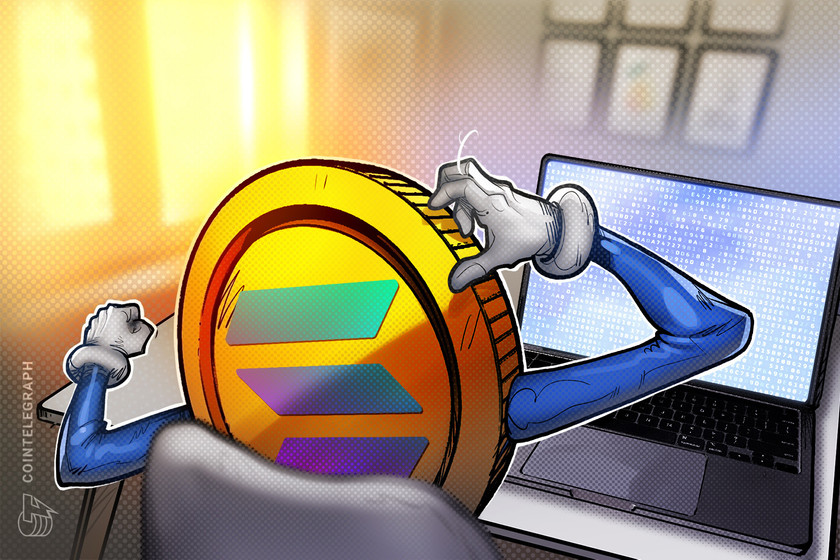Austin Federa, head of strategy at the Solana Foundation, spoke to Cointelegraph at the ETHDenver conference on the network’s outages, the impact of regulation on other projects, and the launch of its mobile device.
Federa said the New York Department of Financial Services — or NYDFS, one of the state regulators responsible for licensing crypto firms — was essentially setting up roadblocks for many projects looking to issue stablecoins or similar blockchain services. He added that Solana had heard from projects facing “pretty draconian” rules in the European Union related to shifting to non-custodial wallets.
“DFS has not certified Solana yet,” said Federa told Cointelegraph on March 1. “We’re trying to get it underway, but I think that what we’ve seen is a lack of appetite from DFS anywhere. If a new entrant — let’s say, a large financial services Web2 company — feels like they want to start issuing a stablecoin, they feel like they need DFS approval in order to do something like that.”
In response to the recent slowdown in block production, which resulted in a Solana network restart, Federa said there was “no specific root cause analysis” reported by the team’s engineers. He added that there may have been “something about the interaction” between the network’s version 1.13 and 1.14 or in the latest attempt to upgrade that forced validators to restart.
“The thing is about 1.14, it was running on testnet for months before it was actually migrated over to maintenance,” said Federa. “So, what that really sort of highlighted is that the testing infrastructure for releases isn’t quite as robust as it needs to be right now because it wasn’t like this was just something that was just, you know, thrown onto mainnet like willy-nilly. It’s just the testing didn’t catch what this error was.”
Federa said that Solana’s approach has been to develop a faster ecosystem in a matter of months, as opposed to networks like Ethereum, which had taken years. He added that many projects were hurting for venture capital funds amid the bear market and negative press coverage associated with crypto and blockchain, with stability a major factor in the retention of users.
“One of the risks there is downtime, and so that there’s been a sacrificing of stability to get more stuff out more quickly to help the network grow more quickly.”
The root cause of the 2-25-23 outage is still unknown and under active investigation. The…
Click Here to Read the Full Original Article at Cointelegraph.com News…
























